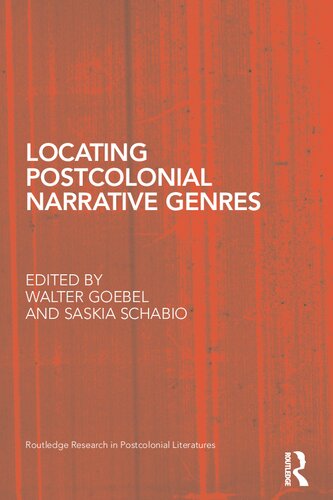

Most ebook files are in PDF format, so you can easily read them using various software such as Foxit Reader or directly on the Google Chrome browser.
Some ebook files are released by publishers in other formats such as .awz, .mobi, .epub, .fb2, etc. You may need to install specific software to read these formats on mobile/PC, such as Calibre.
Please read the tutorial at this link. https://ebooknice.com/page/post?id=faq
We offer FREE conversion to the popular formats you request; however, this may take some time. Therefore, right after payment, please email us, and we will try to provide the service as quickly as possible.
For some exceptional file formats or broken links (if any), please refrain from opening any disputes. Instead, email us first, and we will try to assist within a maximum of 6 hours.
EbookNice Team

Status:
Available0.0
0 reviewsThis volume explores how postcolonial texts have determined the evolution or emergence of specific formal innovations in narrative genres. While the prominence of questions of cultural identity in postcolonial studies has prevented due attention to concerns of literary form and aesthetics, this book gives premium to the literary, aiming to delineate the evolution of specific narrative techniques as part of an emerging postcolonial aesthetics. Essays delineate elements of an emergent postcolonial narratology across a variety of seminal generic forms, such as the epic, the novel, the short story, the autobiography, and the folk tale, focusing on genre as a powerful tool for the historicizing of literature and orature within cultural discourses. Investigating the heuristic value of concepts such as mimicry, writing back, translation, negotiation, or subversion, the book considers the value of explanatory paradigms for postcolonial generic models. It also explores the status of postcolonial comparative aesthetics versus globalization studies and liberal concepts of the transnational, taking issue with the prominence of Western concepts of identity in discussions of postcolonial literature and the favoring of mimetic forms. This volume offers a unique contribution to the study of narrative genre in postcolonial literatures and provides valuable insight into the field of postcolonial studies on the whole.